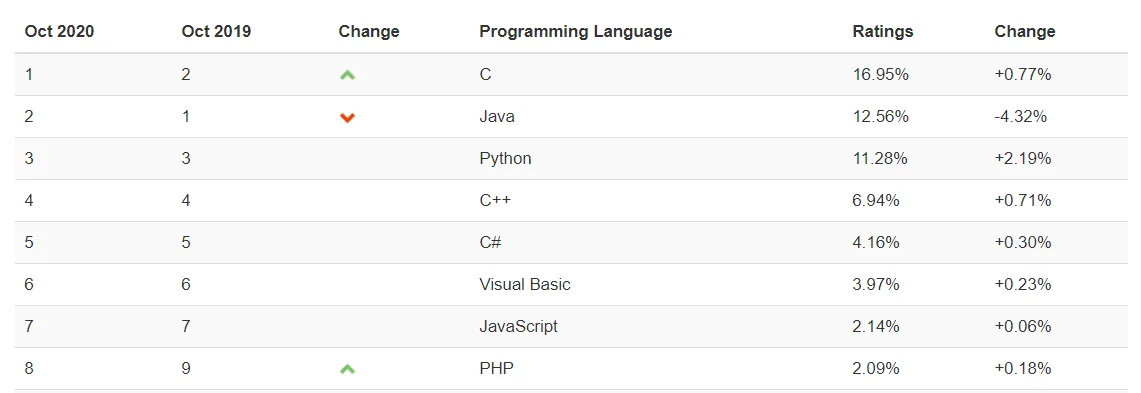Java programming has been a challenging, rewarding, and enjoyable career choice for me. Pieces of code written by us programmers drive mobile apps, websites, banking transactions, shopping, and pretty much everything in the digital world.
I have been practicing and teaching Java for years and aim to allay your apprehensions about making a career switch from being a PHP programmer to a Java developer. In this article, we will compare these two programming languages and see why the transition from PHP will be a game-changing point for your career.
Java vs. PHP: History, Overview, and Applications
PHP — An acronym for PHP: Hypertext Preprocessor, PHP is an open-source, server-side scripting language. It was created in 1995 to quickly build responsive and interactive web portals in a dynamic, cost-effective way. Top technology companies such as Facebook, Yahoo, Wikipedia, Tumblr, etc. are using it as part of the backends of their websites.
Java — It is one of the most popular programming languages that has existed for over 20 years. It is considered to be one of the most stable programming languages, as it is based on the Write Once, Run Anywhere (WORA) principle. It has a universal nature, thanks to the Java Virtual Machine that makes Java compatible with different devices and platforms. LinkedIn, AliExpress, Amazon, eBay are some of the notable organizations that use Java.
Java vs. PHP: Which is the Better Programming Language?
As you have noticed, I have already declared that moving from PHP to Java is worth it, indicating Java’s usefulness. In this section, let’s have a straight shootout between the two things — performance and speed.
Performance and Speed: Performance of a language is subject to usage, proficiency of developers, application design, etc. Therefore, it would be inaccurate to declare a unanimous winner. Java has been the preferred language for enterprises for over two decades now and has a favorable network effect. Consequently, there are more optimization and tuning tools developed for Java compared to PHP. By the time PHP started gaining popularity, Java was already established as a finished product and there was no obvious reason for users to switch.
Java vs. PHP: Better Option for Large Organizations?
Both languages compete closely on this parameter, as both are built for modularity. Enterprise-level users prefer it for the following reasons:
- Documentation — Java has well-organized, comprehensive documentation that has been standardized. This makes Java frameworks easy to install and troubleshoot.
- Talent pool — Java has a larger talent availability compared to PHP. Hence, organizations find it easier to hire experienced programmers who have delivered complex projects.
- Backward compatibility — Enterprises love this feature, as their projects are not hampered by the movement of personnel. Large organizations sitting on huge legacy codebases have employees joining and leaving all the time. Backward compatibility ensures continuity of operations.
- Security and Stability — It is common for organizations to run more than 5 years old Java code, especially highly sensitive industries such as banking, airline, etc. There are no security threats with codes as old as these, which is not the case with PHP.
- Industry support — When a tech giant like Oracle backs a language and develops its own development kit for it, you know it is there to stay. That is the kind of acceptance Java enjoys in the industry.
#coding #programming #programming-languages #java #php
